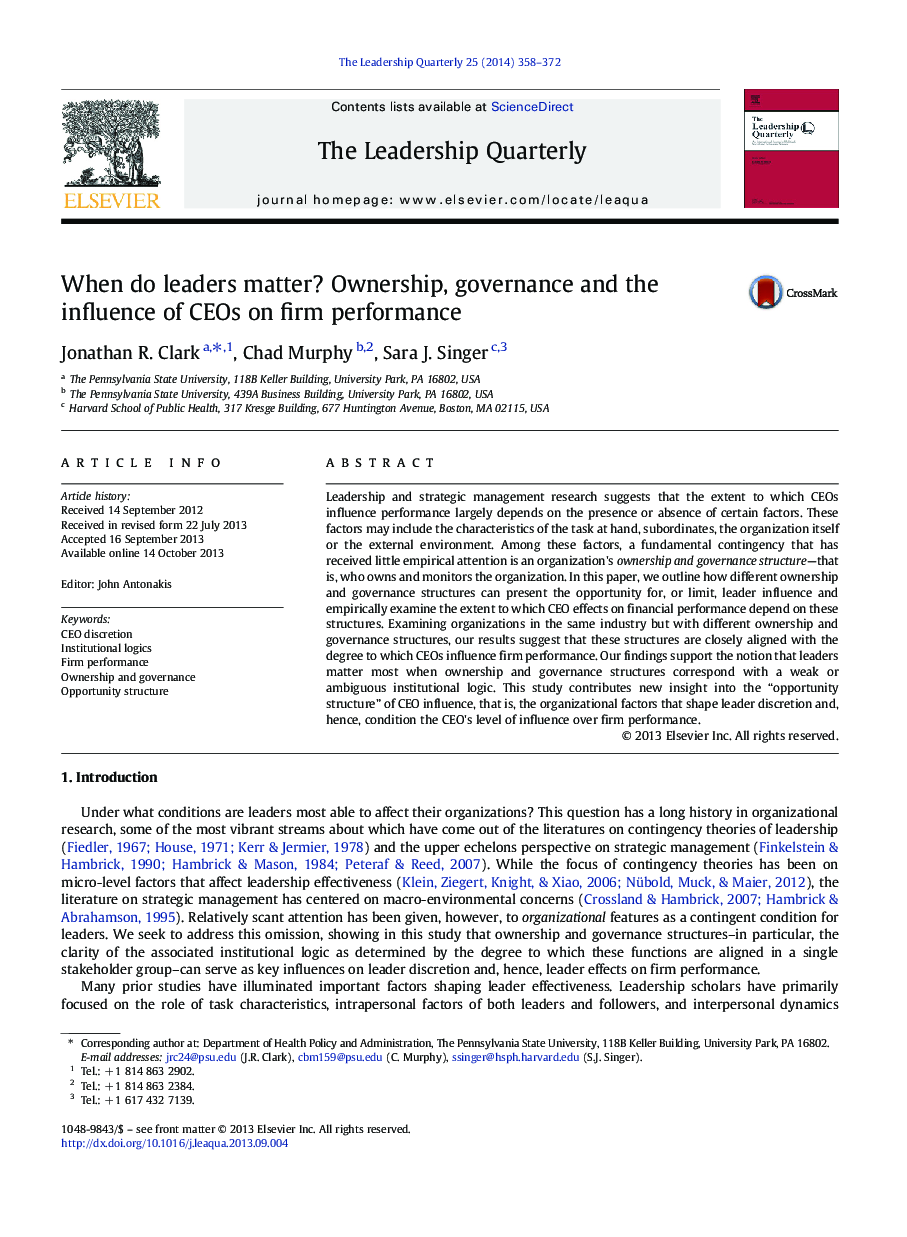| Article ID | Journal | Published Year | Pages | File Type |
|---|---|---|---|---|
| 887896 | The Leadership Quarterly | 2014 | 15 Pages |
Leadership and strategic management research suggests that the extent to which CEOs influence performance largely depends on the presence or absence of certain factors. These factors may include the characteristics of the task at hand, subordinates, the organization itself or the external environment. Among these factors, a fundamental contingency that has received little empirical attention is an organization's ownership and governance structure—that is, who owns and monitors the organization. In this paper, we outline how different ownership and governance structures can present the opportunity for, or limit, leader influence and empirically examine the extent to which CEO effects on financial performance depend on these structures. Examining organizations in the same industry but with different ownership and governance structures, our results suggest that these structures are closely aligned with the degree to which CEOs influence firm performance. Our findings support the notion that leaders matter most when ownership and governance structures correspond with a weak or ambiguous institutional logic. This study contributes new insight into the “opportunity structure” of CEO influence, that is, the organizational factors that shape leader discretion and, hence, condition the CEO's level of influence over firm performance.
